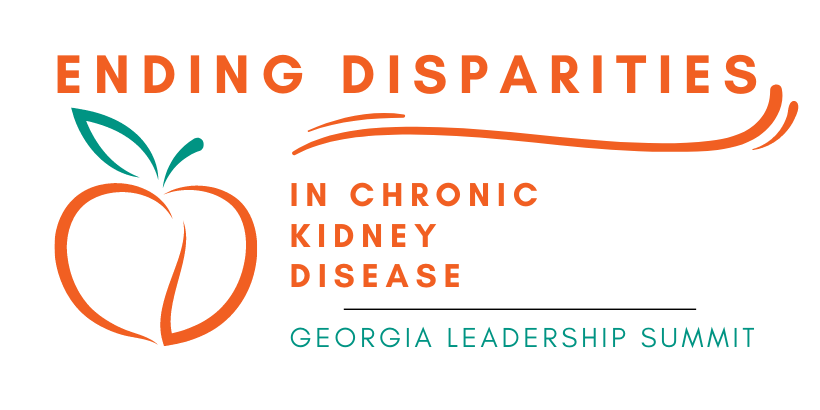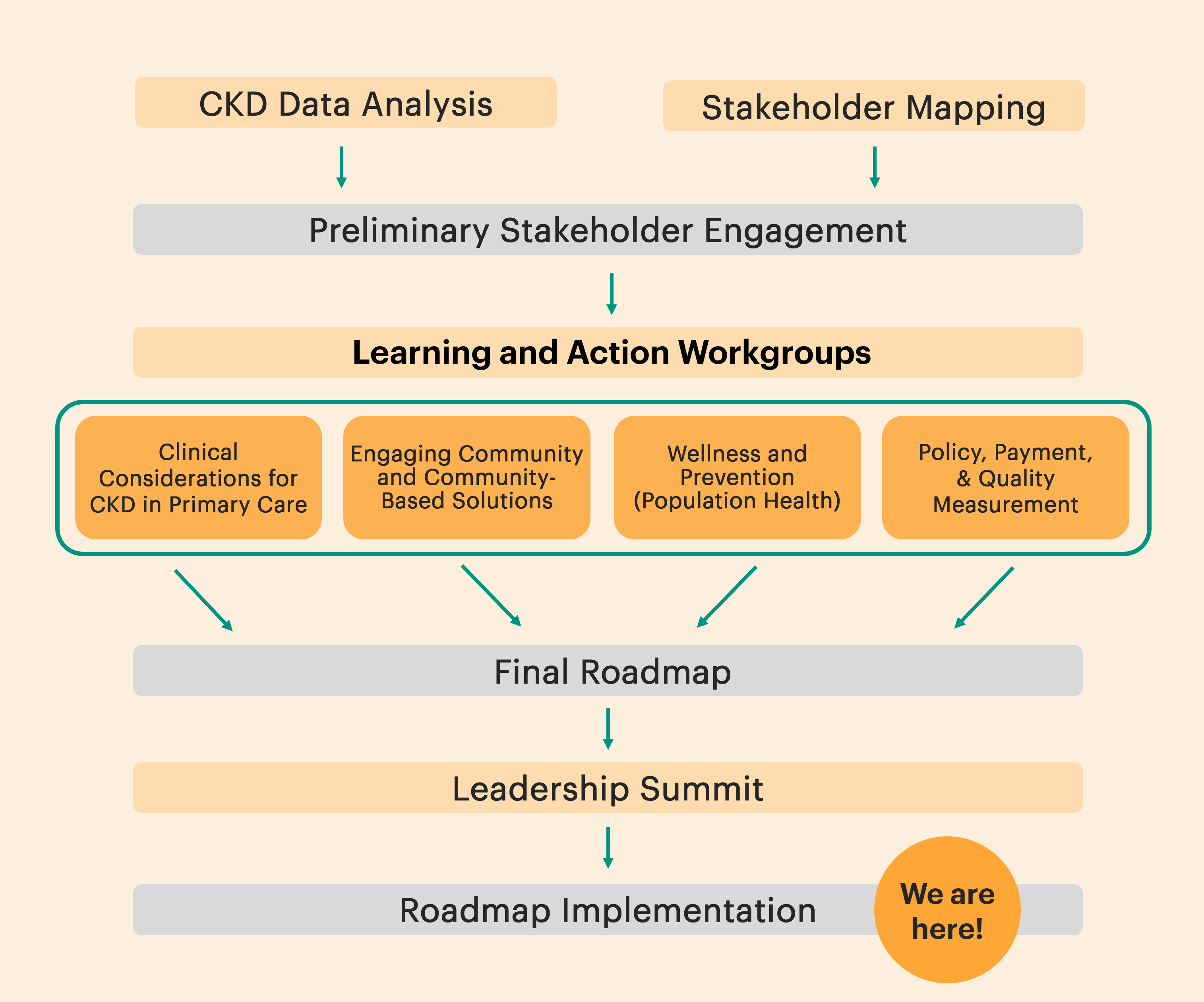
About the Initiative
In the state of Georgia it is estimated that 1.2 million adults have chronic kidney disease, however, only approximately 147,000 adults are aware they have it. As part of a national NKF Collective Impact strategy, Georgia stakeholders are implementing a roadmap to drive a cultural shift in primary care - toward increasing the early diagnosis and management of CKD, especially in communities disproportionately burdened by CKD.

Learning and Action Workgroups
Through a series of facilitated discussions, health care and public health leaders will identify barriers and solutions to improve CKD awareness, detection, and management in Georgia, and especially tools and strategies that can be implemented within stakeholders’ own institutions. Learning and action workgroups will support increased awareness and action amongst the participants. The four workgroups will convene covering the following topics:
Clinical Considerations for CKD in Primary Care
- Goal: To discuss strategies and approaches that can be employed to improve CKD recognition and care in primary care settings.
- Background: A large, national study illustrated that less than 12% of people with CKD were diagnosed in primary care.2 This included as many as 40% of people whose kidneys required specialty care. With the advent of new therapies demonstrated to slow or stop the progression of CKD, there is a very real opportunity to improve quality of care for people with CKD across the entire spectrum of disease.
Engaging Community and Community-Based Solutions
- Goal: To develop strategies to advance CKD awareness through community engagement and to ensure that health care providers are aware of the community resources available to delay CKD progression.
- Background: In the US today, only 10% of people with laboratory evidence of CKD know that they have kidney disease.3 Improved patient awareness, engagement, and Self-Management are vital to successfully slowing CKD progression. As diabetes and hypertension play significant roles in the development of CKD, working with community organizations that support people with chronic disease can be an important step toward raising public awareness of CKD among those at risk for CKD.
Wellness and Prevention (CKD in a Population Health Model)
- Goal: To develop a strategy to incorporate CKD testing and diagnosis into wellness and prevention practices within the employer/commercial health plans, and the broader community.
- Background: To date, almost 90% of people living with CKD remain undiagnosed in the population and the majority will not receive guideline recommended annual testing.5 This breakout session will discuss the strategies that can be developed and employed to ensure that CKD testing and diagnosis are included as part of the wellness and prevention services, including corporate programs, diabetes prevention activities, etc., that are available in Georgia.
Policy, Payment, and Quality Measurement
- Goal: To develop a strategy to streamline CKD testing in primary care from a policy and payment perspective.
- Background: In July 2020, the NCQA released the Kidney Health Evaluation for Adults with Diabetes HEDIS measure (KHE).4 This measure assesses the percentage of people with diabetes that receive both tests for CKD during the course of a year. When tested against over 70 claims datasets, this measure was achieved in only 35% of cases. This measure began collecting data for public reporting in October 2021.
Roadmap
After 16 hours of facilitated discussions, 67 stakeholders identified 14 strategies to improve testing, diagnosis, and early management of CKD in Georgia. Read the roadmap summary here.
Leadership Summit
On December 7, 2023, NKF of Georgia hosted a virtual summit to present the recommendations and engage partners in joining the Collective Impact approach. Over 115 individuals registered and nearly 90 attended the live summit with 28 commitments to support implementation of the 14 recommendations.
Georgia Ending Disparities in CKD Leadership Summit Recording.
Passcode: 48!uZigh
References
- Hanley Brown, F. Kania, J. and Kramer, M. Channeling Change: Making Collective Impact Work. Stanford Social Innovation Review. 2012. https://doi.org/10.48558/2T4M-ZR69
- Szczech, Lynda A., et al. “Primary Care Detection of Chronic Kidney Disease in Adults with Type-2 Diabetes: The ADD-CKD Study (Awareness, Detection and Drug Therapy in Type 2 Diabetes and Chronic Kidney Disease).” Public Library of Science, 26 Nov. 2014. https://doi.org/10.1371/journal.pone.0110535
- “Chronic Kidney Disease (CKD) Surveillance System: Awareness.” Centers for Disease Control and Prevention. https://nccd.cdc.gov/ckd/detail.aspx?QNum=Q97#refreshPosition
- Brock, Matt. “Kidney Health: A New HEDIS Measure.” NCQA Blog, 16 Jul. 2020. https://blog.ncqa.org/kidneyhealth/
- “Chronic Kidney Disease in the United States, 2021.” Centers for Disease Control and Prevention, 4 Mar. 2021. https://www.cdc.gov/kidneydisease/pdf/Chronic-Kidney-Disease-in-the-US-2021-h.pdf